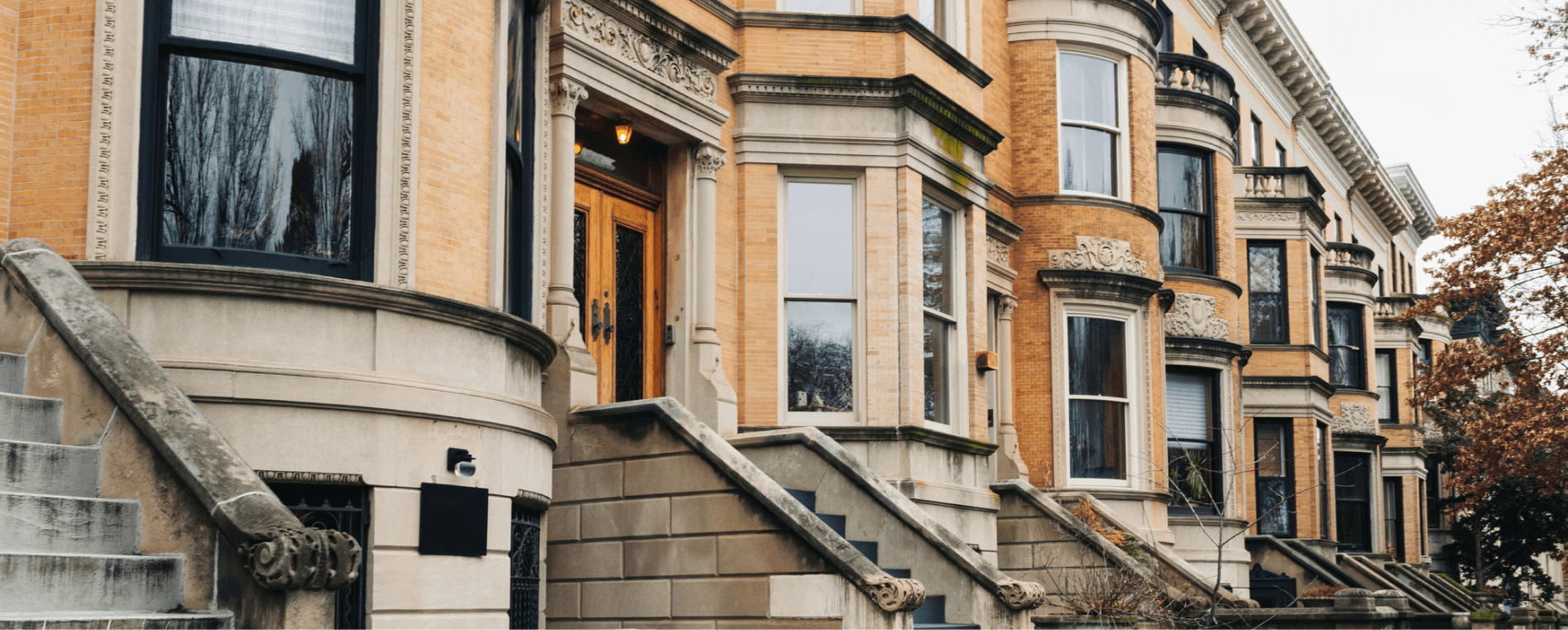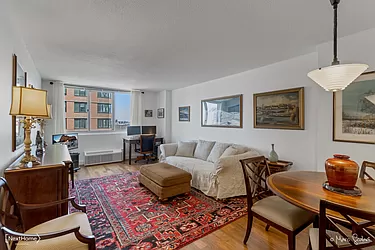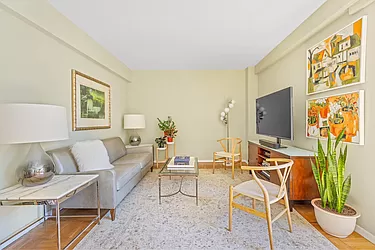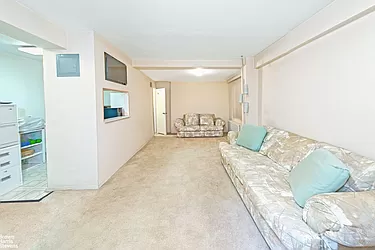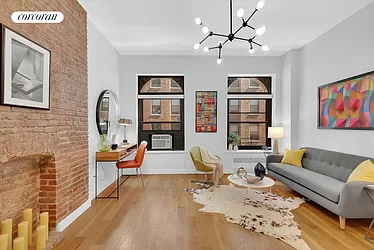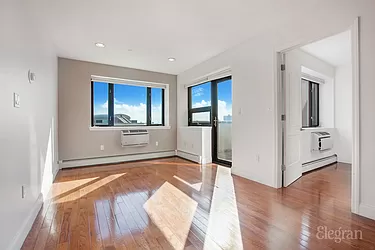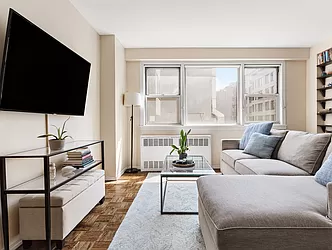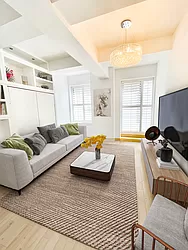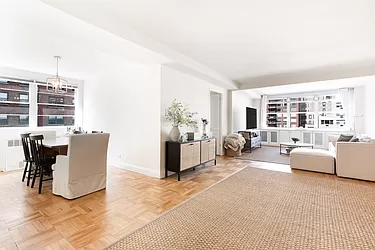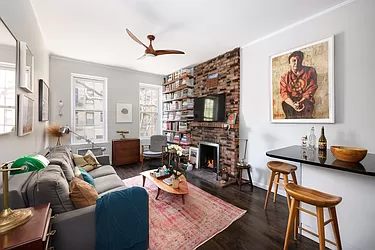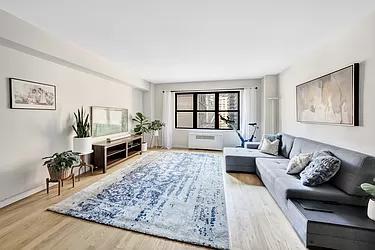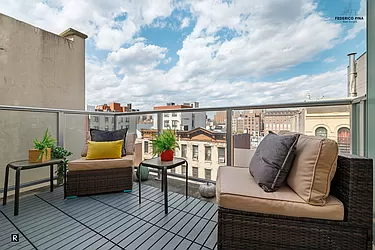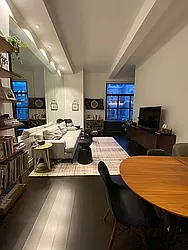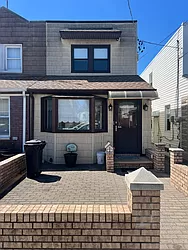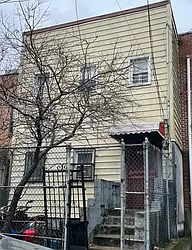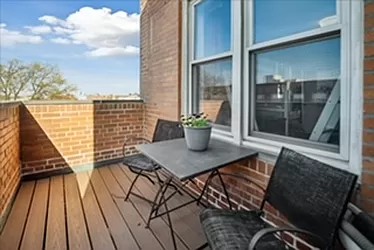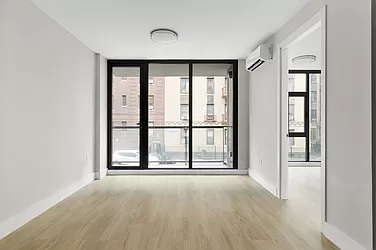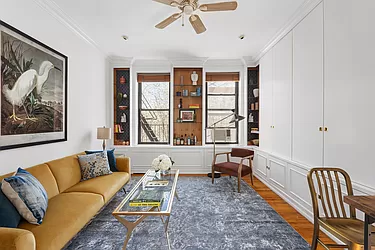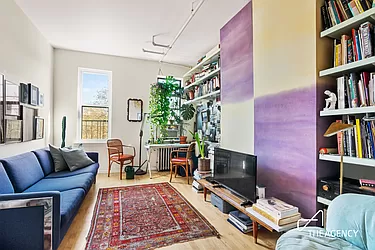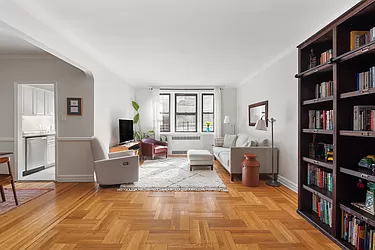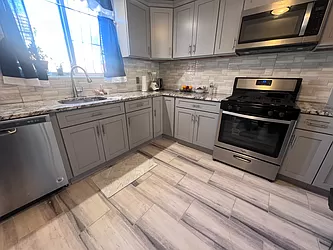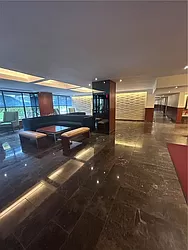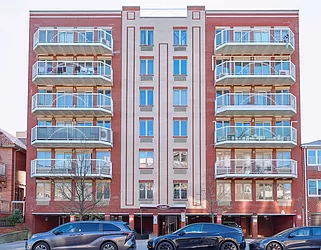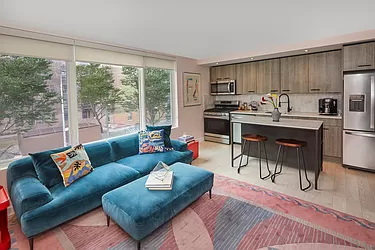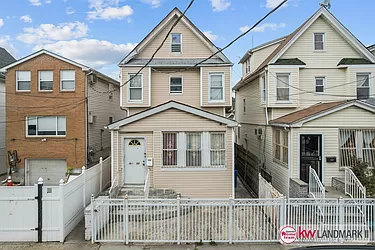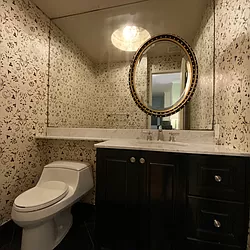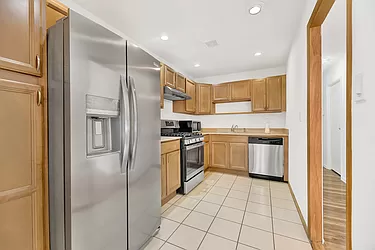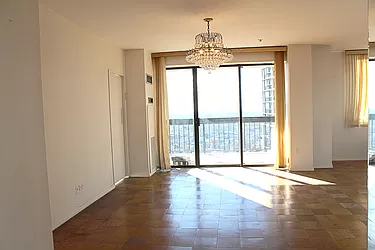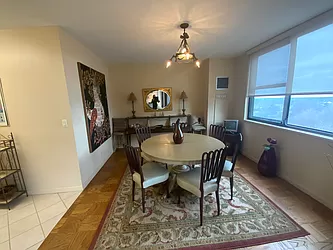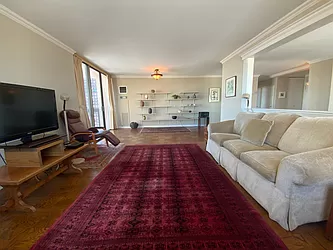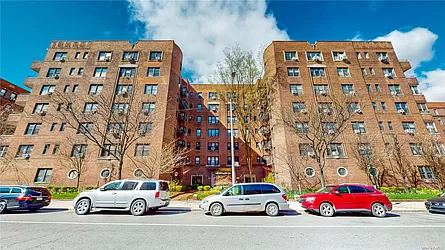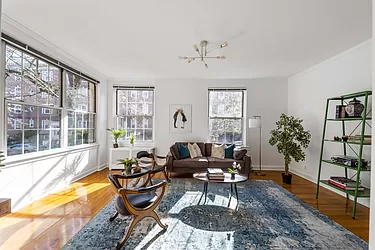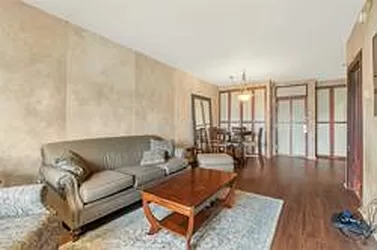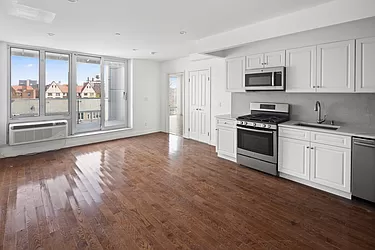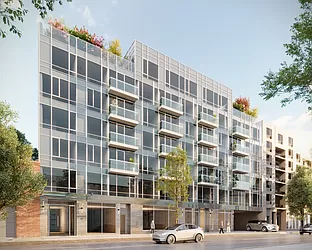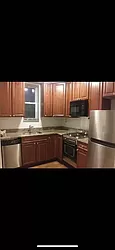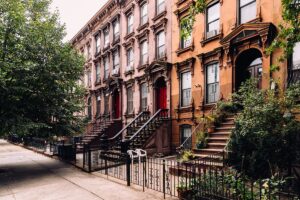Buying Your First Home in NYC
Buying a home in NYC is complicated, but rewarding. If you're a first-time home buyer, or even a returning buyer who needs a refresher, this guide will provide you with tips and strategies for your home-buying journey.
A few of the topics covered in this guide include: how to find your dream home, how to find a buyer's agent, how to prepare for a co-op board interview (and what even is a co-op vs. a condo?), information about home inspections, home loans and mortgages, and much more! We hope these articles will help you make educated decisions and feel a little more confident as you begin this journey — whether you're a first-time home buyer or a real estate veteran. Happy home shopping!Whether you’re buying or selling a home in New York City, you’re going to encounter a lot of fees, contracts, and negotiations. But you may be surprised to learn there are additional expenses to fork over when sealing the deal on a home. These are called closing costs.
Both buyers and sellers have to pay closing costs on a home sale, which can equal up to 10% of the purchase price. Here’s everything you need to know about closing costs, including how much they may be, and how to lower them.
Get more help understanding closing costs
Contact a StreetEasy ExpertWhat Are Closing Costs?
Closing costs are additional taxes and fees that both buyers and sellers have to pay when closing on a home sale. According to Robert Niyazov, CEO of NYC-based mortgage brokerage firm R&J Capital Group, there are two types of closing costs. The first type is bank-related costs, including mortgage taxes and bank attorney fees. The second is title-related costs, such as transfer taxes, title insurance, and the NYC mansion tax (more on this in the next section).
Who Pays Closing Costs?
Both the buyer and the seller of a home will pay closing costs when making a deal. Both parties are responsible for paying their own attorney fees (usually real estate and/or bank attorneys), but the rest of the costs are generally split up between the parties.
Buyer Closing Costs
The buyer will have to pay a mortgage recording tax if they purchase a condo or townhouse. This is the fee associated with registering a mortgage with the state of New York. The mortgage recording tax is 2.05% on mortgages under $500,000 and 2.175% on mortgages above $500,000, and that includes the tax for both NYC and NY State. You can find the latest tax rates on the New York State Department of Taxation and Finance website.
The buyer will also be responsible for paying for title insurance if they buy a condo or townhouse. Title insurance protects the buyer from debt, liens, and other claims against previous owners of the property. The cost of title insurance varies depending on how many owners the unit has had in the past.
Manhattan Homes Under $800K on StreetEasy Article continues below
Additionally, the buyer will have to pay what’s called a mansion tax on any property over $1 million, and the tax rate increases as the sale price of the home increases.
If you’re buying in a new development, you may also be responsible for paying the transfer tax for the city and state, which transfers the title to you. Otherwise, this is a cost the seller takes on. Brian Babst, a licensed associate real estate broker with Compass, says: “I have never in 18 years of doing this, I’ve never seen a seller pass the transfer tax to the buyer, except for new development.”
Other closing costs buyers may have to pay include home appraisal fees, application and credit check fees, and move-in fees.
Seller Closing Costs
The seller is responsible for paying both their listing agent’s commission and that of the buyer’s agent. They’re also responsible for paying the transfer tax, as mentioned above, whether they’re selling a condo, co-op, or townhouse. They’ll also need to pay for their attorney’s fees.
How Much Are Closing Costs?
How much you’ll pay in closing costs largely depends on the price of the home and what kind of property it is. For example, if a buyer purchases a $1 million condo and finances $800,000 of it, they’ll have to pay 2.175% of the $800,000 in mortgage recording tax, which equals $17,400. Then, they’ll owe a 1% mansion tax on the dollar value of the home, or $10,000. Because they’re buying a condo and not a co-op, they’ll have to pay title insurance, which usually costs about 0.4% to 0.6% of the purchase price. For a $1 million home, this would equate to $4,000 – $6,000. Attorney fees usually run between $2,500 and $5,000 as a flat, one-time fee, Babst says. Added together, the buyer is at roughly $38,400 in closing costs, or 3.84% of the purchase price. (Please keep in mind these numbers illustrate a point, and estimates shared here are subject to change.)
A good rule of thumb for buyers is to be prepared to spend 2-5% of the purchase price in closing costs, and expect the percentage to be on the higher end for condos, townhouses, homes over $1 million, and new developments.
Buyers who are purchasing a unit in a co-op will generally pay less in closing costs. Mortgage recording tax and title insurance only apply to real property, which excludes co-ops. However, the mansion tax does apply to co-ops priced over $1 million.
Exact mansion tax rates are as follows:
| Mansion Tax Rate | Purchase Price |
| 1.0% | $1,000,000 – $1,999,999 |
| 1.25% | $2,000,000 – $2,999,999 |
| 1.50% | $3,000,000 – $4,999,999 |
| 2.25% | $5,000,000 – $9,999,999 |
| 3.25% | $10,000,000 – $14,999,999 |
| 3.50% | $15,000,000 – $19,999,999 |
| 3.75% | $20,000,000 – $24,999,999 |
| 3.90% | $25,000,000 or greater |
What If You Can’t Pay Closing Costs?
If you get to the end of your deal and cannot afford the closing costs, you have options. There are HUD programs for both down payment and closing cost assistance in New York City. For example, the HomeFirst Down Payment Assistance Program offers up to $100,000 for closing costs or down payments for first-time homebuyers. Prospective homebuyers must meet certain requirements, including an 80% Area Median Income (AMI). Find out more about different types of home loans for NYC buyers.
Additionally, private banks also offer assistance, such as Bank of America’s America’s Home Grant® program, Chase’s Homebuyer Grant, and Citibank’s Lender Paid Assistance program.
A bank will rarely allow you to include closing costs directly in your mortgage, Niyazov says. However, sometimes the seller will allow the buyer to finance their closing costs, which is called a seller’s concession. For example, imagine a buyer and seller negotiating a deal at $500K. The buyer has a 5% down payment, but doesn’t have much money for closing costs. If the property appraises for higher than $500K — let’s say $515K — the seller can agree to amend the purchase price to $515K, but only takes $500K. “[The buyer] is getting 95% financing,” Niyazov explains. “Now they’re going to get 95% financing of the $515K, so they’re going to get more money from the bank.” The buyer uses the extra financing to pay for the closing costs.
Brooklyn Homes Under $800K on StreetEasy Article continues below
Can You Avoid Closing Costs?
In short, it’s hard to avoid closing costs altogether. You can avoid some closing costs, like the mansion tax, by purchasing a home under $1 million. Additionally, you can avoid title insurance and mortgage recording tax by purchasing a co-op instead of a condo or townhouse.
However, there’s no way around certain closing costs. Attorney fees, for example, are necessary in NYC, where only attorneys write contracts, not brokers. “Brokers prepare transaction sheets, which we hand off to attorneys, and the attorneys convert those business terms into legal terms,” Babst says. “And they really do perform a very vital function, protecting the seller, protecting the buyer, and their interests.”
If you’re buying in a new development, the developer may pass on the transfer tax to you. However, Babst recommends negotiating with the developer to absorb the cost, as sellers traditionally would. “In recent years, with the flood of excess new development inventory, developers have been eating this cost in a way that they didn’t traditionally,” Babst says.
Queens Homes Under $800K on StreetEasy Article continues below
How Can You Lower Your Closing Costs?
Besides avoiding purchasing a condo, townhouse, home listed above $1 million, or new development, there are a few ways to lower closing costs. You can pick an attorney with a lower flat rate, for instance. Niyazov also recommends working with a mortgage professional to obtain an appraisal waiver, saving buyers the cost and time of receiving an appraisal.
If you’re looking for a way around the mortgage recording tax, you may consider a Purchase CEMA (Consolidation Extension Modification Agreement), Babst says. CEMAs are usually used by homeowners looking to refinance their homes, but they can also be used when purchasing a home in New York State. In this instance, the seller transfers their mortgage’s remaining balance to the buyer, who then consolidates it into a new loan. This can save money on the mortgage recording tax, as buyers will only have to pay taxes on the difference between the seller’s loan and the new consolidated loan amount.
Another way to lower your closing costs is by working with a real estate agent who has specialized, hyper-local experience, like those in StreetEasy’s Experts Network. Expert agents have verified deal history in the very building, neighborhood, or property type that you’re interested in buying or selling, and can use their knowledge, expertise, and negotiation power to help reduce your closing costs.
Contact the StreetEasy Concierge for buyers or sellers below and get matched with the best Expert for you.
Contact the StreetEasy Concierge for buyers Contact the StreetEasy Concierge for sellersDisclaimers: StreetEasy is an assumed name of Zillow, Inc. which has a real estate brokerage license in all 50 states and D.C. See real estate licenses. StreetEasy Concierge team members are real estate licensees, however they are not your agents or providing real estate brokerage services on your behalf. StreetEasy does not intend to interfere with any agency agreement you may have with a real estate professional or solicit your business if you are already under contract to purchase or sell property.
For FSBO postings, the StreetEasy Concierge is meant to provide insight to improve your posting performance on StreetEasy and may refer you to a real estate professional based on your specific needs.
StreetEasy earns a referral fee from successful Experts’ transactions, at no cost to the buyer or seller. Experts must meet StreetEasy’s standards of service and market expertise. Agents in our Experts Network have closed deals on homes similar to the seller’s or similar to homes the buyer is searching for. We measure their performance to make sure buyers and sellers get top-notch service.
